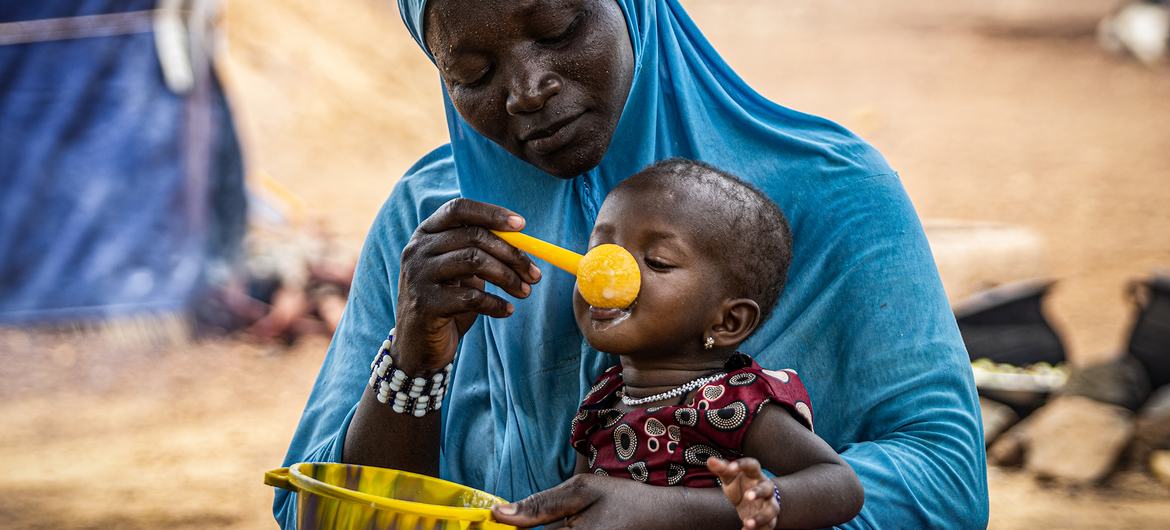By Ayomide Otitoju
The United Nations World Food Programme (WFP) has raised alarm over a severe hunger crisis affecting over 40 million people across West and Central Africa during the 2024 post-harvest season. The number of those battling hunger is projected to rise to 52.7 million by mid-2025, with 3.4 million facing emergency levels of hunger (IPC/CH Phase 4), according to the organization’s latest Cadre Harmonisé food security analysis released this month.
Despite a slight reduction in acute food insecurity compared to last year, credited to improved security and favorable rainfall in parts of the Sahel, the situation remains dire. The analysis revealed a staggering 70% increase in people experiencing emergency hunger levels during the post-harvest season and a 22% spike expected during the June-August 2025 lean season.
Most Affected Countries
Nigeria, Cameroon, and Chad are the hardest hit, collectively accounting for over half of the region’s food-insecure population. Forcibly displaced people in these areas are disproportionately affected, often unable to access farmlands or grazing areas essential for subsistence farming.
Margot van der Velden, WFP’s Regional Director for Western Africa, emphasized the multi-faceted drivers of food insecurity in the region: “Conflict, displacement, economic instability, and severe climate shocks are fueling this crisis. Over 10 million people are displaced in West and Central Africa, many of whom have lost access to their livelihoods. Additionally, deadly floods this year, impacting six million people, have further disrupted agricultural productivity.”
Child Malnutrition on the Rise
The crisis has had devastating effects on children. In 2024, an estimated 16.3 million children faced acute malnutrition, including 5 million in its severe form. Recent nutrition surveys highlight worsening conditions in several Sahelian regions.
“Good nutrition in early childhood is crucial for survival, development, and future health,” said Gilles Fagninou, UNICEF Regional Director. “Investing in nutrition yields substantial returns, and we must act to provide therapeutic food for children under five while simultaneously addressing the root causes of malnutrition.”
Call for Urgent Action
The FAO, UNICEF, and WFP have called for immediate and sustained funding to deliver lifesaving assistance and invest in long-term solutions to combat hunger and malnutrition.
Robert Guei, FAO Sub-Regional Coordinator for West Africa, highlighted the need for a paradigm shift: “The continuing deterioration of food security, despite significant efforts, underscores the urgency of a new approach. We must strengthen resilience programs, support smallholder farmers with access to fertilizers, and enhance preparedness to mitigate future crises.”
High food prices and low purchasing power are exacerbating the crisis, making basic nutrition unaffordable for many households. The economic impact is particularly severe in coastal nations like Senegal, Guinea, Sierra Leone, and Nigeria, where the cost of living has surged.
A Regional Commitment to Change
With sufficient resources, the UN agencies plan to scale up their efforts in partnership with national governments. Their focus will be on building resilient communities, advancing sustainable food systems, and reducing poverty through targeted programs.
“The cycle of hunger in West and Central Africa can be broken, but it requires coordinated action and substantial investment,” said van der Velden. “We must act now to prevent further suffering and ensure a sustainable future for millions.”












